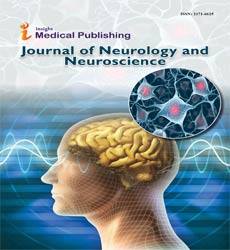Abstract
The Neuromodulatory Effect of Vagus Nerve Stimulation (VNS) in Drug Resistant Generalized Epilepsy in Saudi Arabia
Background: Vagus nerve stimulation (VNS) is a treatment mainly approved as an adjuvant toantiepileptic drugs for therapy-resistant focal epilepsy. Currently, its use is expanded to include patients with generalized epilepsy. The current study reports the outcomes of VNS for patients with drug resistant generalized epilepsy in Saudi Arabia.
Methods: A retrospective research design was employed with a sample of 18 patients with generalized epilepsy who were treated with VNS at King Fahad Medical City. The reported outcomes included seizure frequency reduction and side effects of VNS therapy.
Results and Findings: The mean seizure onset age was 4.11 years (SD= 2.85), ranging from 1-9. The mean age of VNS implantation was 17.76 years (SD= 7.46), ranging from 5-30 years. Three years after the implantation, one of the patients was seizure-free, and 13 patients (72.22%) had at least a 50% reduction in the frequency of seizures compared to baseline. The overall reduction in seizure frequency showed a significant reduction of 54%, t (17)=2.07, (P=0.05). Most patients (n= 14, 77.8%) reported no side effects after VNS implantation. More specifically, seizure types that were most responsive to VNS treatment included tonic (100% > 50% reduction), myoclonic (80% > 50% reduction), and GTC (76.4% > 50% reduction), whereas the astatic and atonic seizure types were least responsive (50% > 50% reduction). The usually reported side effects were wound infection, cough, choking, and hoarseness. The study was conducted in one tertiary epilepsy center. Hence, our sample size was relatively small.
Conclusion: The outcomes of VNS confirm its safety and effectiveness as adjunctive therapy for patients with drug-resistant generalized epilepsy in Saudi Arabia. More research with large samples is still needed to specify the characteristics of patients who respond well to VNS.
Author(s):
Ashwaq Alshahrani, Hanin Algethami, Majed Alhameed, Fawziyyah Bamogaddam, Lamya Jad, Ali Alotaibi, Ali alwadie, Najeeb Alomar, Fahad Alotaibi and Mubarak M. Aldosari
Abstract | Full-Text | PDF
Share this

Abstracted/Indexed in
- Google Scholar
- Open J Gate
- Genamics JournalSeek
- The Global Impact Factor (GIF)
- China National Knowledge Infrastructure (CNKI)
- Directory of Research Journal Indexing (DRJI)
- WorldCat
- Proquest Summons
- Scientific Journal Impact Factor
- Secret Search Engine Labs
- Euro Pub
Open Access Journals
- Aquaculture & Veterinary Science
- Chemistry & Chemical Sciences
- Clinical Sciences
- Engineering
- General Science
- Genetics & Molecular Biology
- Health Care & Nursing
- Immunology & Microbiology
- Materials Science
- Mathematics & Physics
- Medical Sciences
- Neurology & Psychiatry
- Oncology & Cancer Science
- Pharmaceutical Sciences

